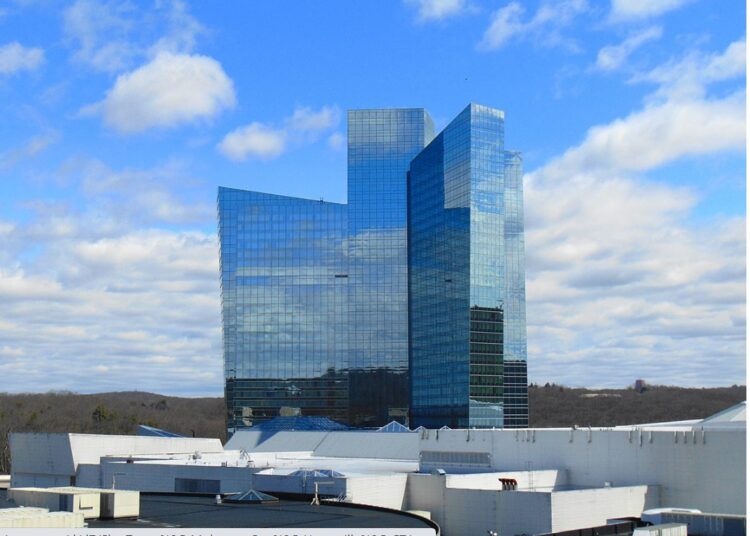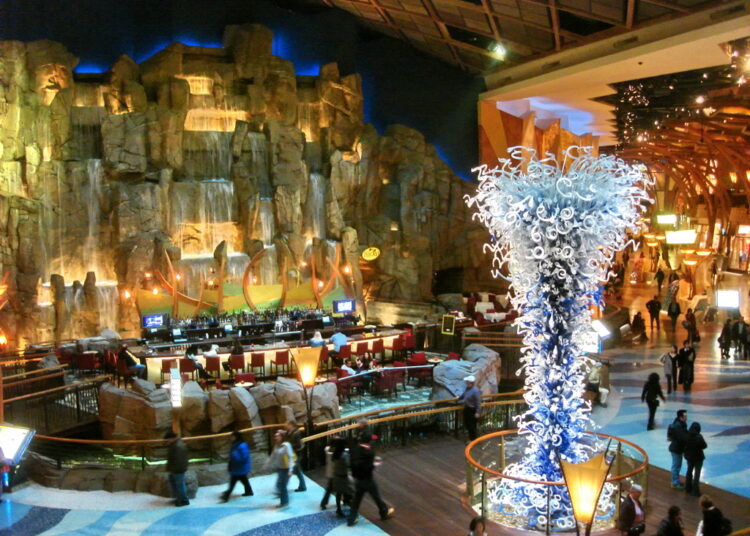When the COVID-19 pandemic shut down Foxwoods Resort Casino in Connecticut for three months in 2020, “the casino revenues went from millions to zero overnight” and it was their wakeup call: they needed to diversify their revenue streams, said Tribal Chairman Rodney Butler.
The 1,000-member tribe has since expanded its efforts to get into the federal government contracting business, making it one of several tribal nations to look beyond the casino business more seriously. Tribal leaders and tribal business experts say the global pandemic has been the latest and clearest sign that tribal governments with casinos can’t depend solely on slot machines and poker rooms to support future generations.
Some tribes, with and without casinos, have gotten involved in a wide range of non-gambling businesses, such as trucking, construction, consulting, health care, real estate, cannabis, and marketing over the past decade or longer while others have been branching out more recently.

A new report from the Center for Indian Country Development at the Federal Reserve Bank of Minneapolis found that many tribes are increasingly doing business with the federal government, especially the U.S. Department of Defense.
Connecticut’s Mashantucket Pequots’ non-gambling entity, Command Holdings, last year made its largest acquisition to date: WWC Global, a Florida-based management consulting firm that predominantly works with federal agencies, including the defense and state departments. WWC announced in December that it had been awarded a $37.5 million contract supporting the federal Cybersecurity and Infrastructure Security Agency.
Butler said the tribe hopes non-gambling revenues, including from a planned family resort with a 91,000-square-foot (8,450-square-meter) water park that’s expected to open in 2025, will eventually comprise 50% to 80% of the Mashantucket Pequots’ portfolio, providing “stability and certainty” when another challenging event undoubtedly will happen.
“You think about the financial crisis in ’08 and now COVID. And so, something’s going to happen again,” Butler said.
“Tribal economies are at an inflection point because gaming markets are maturing across the U.S.,” said Dawson Her Many Horses, head of Native American banking for Wells Fargo and an enrolled member of the Rosebud Sioux Tribe of South Dakota. “As casino revenues flatten, tribes will be looking for new business opportunities in other industries.”
The pandemic, Fitzpatrick said, really highlighted the importance of such a strategy, given the financial impact of COVID-19 on tribal schools, health care centers, assistance for older adults, day care programs and other services.
“It wasn’t about a loss of revenue,” she said. “It was a loss of, ‘What we can do for our community and in our community.’”

That doesn’t mean tribes are giving up on gambling. Some are even expanding it. The gambling and hospitality entity owned by the Mohegan Tribe in eastern Connecticut announced this month it is partnering with a New York developer to try and secure a New York City gambling license and build a proposed entertainment district in Manhattan’s East Side. Meanwhile, the Chickasaw Nation in Oklahoma is part of another consortium that wants to build a casino and entertainment complex on New York’s Coney Island.
The National Indian Gaming Association reported in August that $39 billion in gross gambling revenue was generated in fiscal year 2021, the most in tribal gambling history. That figure, which accounts for 243 tribes across 29 states, increased 40% over the previous year.
Patrick Davison, vice president of Native American gaming and finance at PNC Bank, said he’s been working with tribal officials who still want to build casinos but also want to avoid overbuilding. He said the pandemic was “a real eye-opener for tribes” as officials consider their tribes’ futures in the gambling business.












